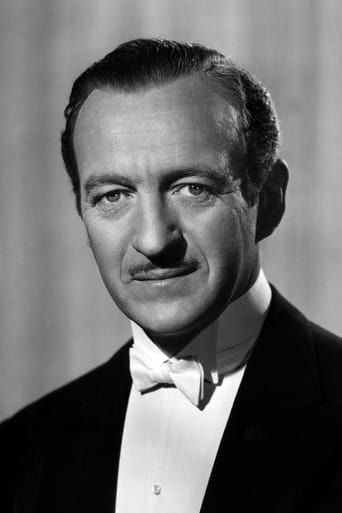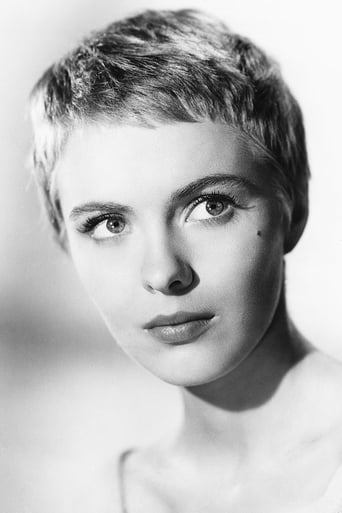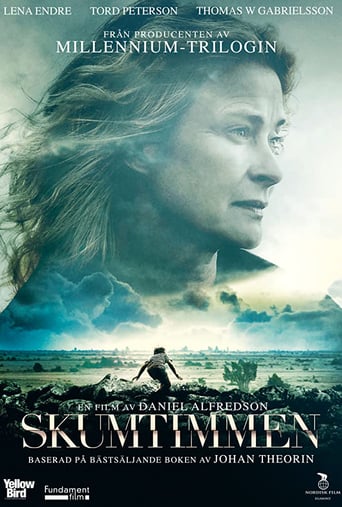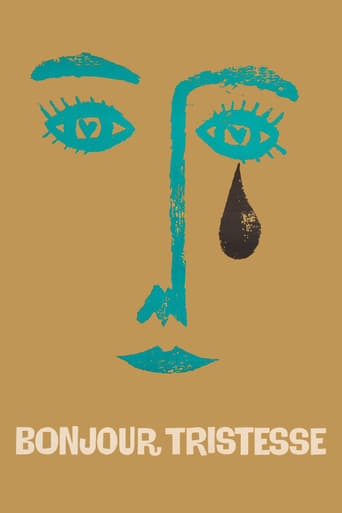
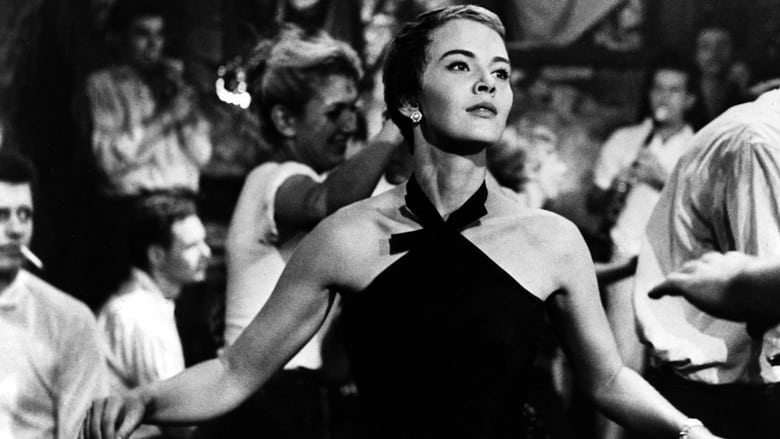
Bonjour Tristesse (1958)
Cecile is a decadent young girl who lives with her rich playboy father, Raymond. When Anne, Raymond's old love interest, comes to Raymond's villa, Cecile is afraid for her way of life.
Watch Trailer
Cast
Similar titles

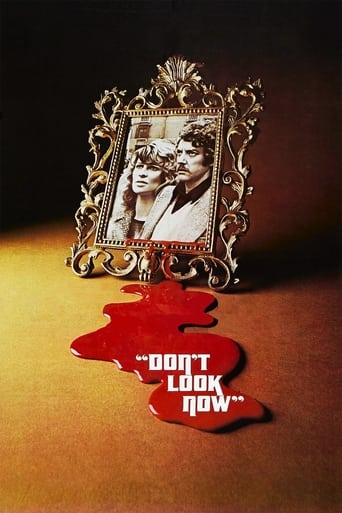



Reviews
That was an excellent one.
good back-story, and good acting
what a terribly boring film. I'm sorry but this is absolutely not deserving of best picture and will be forgotten quickly. Entertaining and engaging cinema? No. Nothing performances with flat faces and mistaking silence for subtlety.
Through painfully honest and emotional moments, the movie becomes irresistibly relatable
Adapted from Françoise Sagan's debut novel published in 1954 when she was merely eighteen- years-old, Otto Preminger's BONJOUR TRISTESSE thrives on weaving its melodramatic tenor through the flippant precociousness of its protagonist, Cécile (Seberg), a 17-year-older gamine living with her affluent but roué father Raymond (Niven).The film starts in Paris, in her all-out glamour and allure reflected through the monochromatic lens, Cécile and Raymond appear to be the perfect father-daughter pair, no generation gap, neither is too clingy to each other, they are like-minded and incredibly compatible, thoroughly luxuriate in their bourgeois dalliances as if nothing could ever faze them.However, elicited by Juliette Gréco's terribly sensuous and lugubrious rendition of the titular theme song BONJOUR TRISTESSE, written by Georges Auric, Cécile's memory hacks back to one year earlier, in French Riviera, while the movie flashes back into its varicolored richness, it is a guilt- ridden recollection, - seven, is my lucky number, murmurs Cécile, but exactly, what happened last summer?Tragedy happens, certainly, bonjour tristesse literally means hello sadness, but before that, there were happy moments, Cécile was on vacation with Raymond and his young lady friend Elsa (Demongeot, a blonde bombshell in Marilyn Monroe-ish chicness) in his villa, soon they were joined by Anne (Kerr), an old friend of Raymond's late wife, Cécile's godmother, now a divorcée, whereas Cécile found herself a new beau, Philippe (Horne), an open-faced, handsomely-built young man living nearby.The cast must have such a great time in making this film, sunbathing, swimming, water-skiing, dining, drinking, gambling and wiggling, everything sounds like a paid holiday. Then, bang, Raymond expresses his affections to Anne and proposes to marry her, and suddenly Elsa being kicked out of the picture. The match seems perfect, even in the eyes of Cécile, maternity endearment is something very healthy for her growth and nobody could be more suitable than Anne to assume that role. But soon, the spoiled side of her nature eggs her to defy Anne's matronly discipline, and an apparently naive plan (with the help of Philippe, a fool in love, and the "brilliant" Elsa) to scuttle Raymond and Anne's marriage will go haywire and the aftermath will make Cécile rue the day.There is something inherently vapidly in Sagon's story, but the movie retains magnificently a superficial but bewitching unpretentiousness of Raymond and Cécile, which makes them watchable, they are not intelligent people, Anne is evidently too good for them, but on the other hand, they are very much honest to themselves, the tragedy could have been avoided (there is no clarification it is an accident or a suicide, but the marriage would still hit a bumper road in a long run), in a way, Cécile's scheme only help Anne to see through Raymond's nature, so from a more cautionary aspect, the whole story seems to bear witness that we should never have the illusion that one's unconditional love can change a person, either take it wholly or leave it immediately, there is no grey area here.Preminger really loved Seberg, after the flop of SAINT JOAN (1957), Seberg's screen debut, he didn't give her up, here he cherry-picks her a tailor-made role and unreservedly puts her in the centre of the narrative, to flesh out her elfin mischief, singular delicacy, all in a continental style, prepares her for the star-making triumph in Godard's BREATHLESS (1960).The Niven-Kerr pair works side by side twice in a calendar year, compared with a more self- inflicted restraint in Delbert Mann's ensemble piece SEPARATE TABLES (1958), Niven is much more nonchalant as a sybarite, to quote Raymond - is silly and vain, whereas Kerr hops up with a refreshingly relaxed air of being "the unattainable Anne" during her flashy entrance, only not soon would she backtrack to the stereotype of "Raymond, I cannot be casual" seriousness, or, in Cécile's words, "the prim, prissy and prude".Calling BONJOUR TRISTESSE a high point of Preminger or any these leading stars' coruscating careers is a far-fetched argument, however, its reputation and mojo as a level-headed cinematic raconteur endures the test of time, sleekly orchestrated by Preminger's efficient artifice and Auric's string-heavy score.
Pretty teen-aged Jean Seberg (as Cecile) recalls an idyllic summer spent, on the French Rivera, with playboy father David Niven (as Raymond), and their lovers. While Mr. Niven bags younger "hot lobster" Mylène Demongeot (as Elsa), Ms. Seberg hooks up with handsome young Geoffrey Horne (as Philippe). Their lives are interrupted when older, still attractive Niven-ex Deborah Kerr (as Anne) arrives on the scene. Aware of Ms. Kerr's prim ways, Niven moves out on his mistress. As soon as Ms. Demongeot is dispensed with, Niven announces he is engaged to Kerr, with whom he's been having less vulgar fun, anyway. Seberg is happy, until Kerr decides to play step-mother, and advises Seberg to shed boyfriend Horne and concentrate on more educational pursuits.Otto Preminger's "Bonjour Tristesse" is lacking in character development. Both Seberg and Kerr needed to inject more friction in their increasingly adverse relationship; and, Niven needed to show his character and lifestyle were worth the struggle - most lacking is Seberg, the real star of the film. Instead of holding your interest, you think they're wasting your time. A mutual incestuous interest, between father Niven and daughter Seberg, may be discerned in the way they kiss, and speak to each other - but, it's difficult to determine with certainty, given cultural norms. The film's main strength is its lovely alternating black-and-white to color photography, by Georges Périnal.***** Bonjour Tristesse (3/17/58) Otto Preminger ~ Jean Seberg, David Niven, Deborah Kerr
This is an odd movie based on a rather simple and not very odd book. First of all, making the father/fiancé so very British is odd in a French context. Even more peculiarly, the actor with the least ability and an American to boot, was the only one of the main trio who seemed French and indeed managed to make herself French during her short life. That said, it is worth the time, is interesting and, of course worth talking and writing about. However, if is not a great movie, not even a good one. Coulda, Shoulda, Woulda resound in my head as the inevitable unfolds. In any event Ms. Kerr is always well worth watching and Mr. Niven is no slouch either. He does manage to convey that he knows he has blighted his life and no, he wasn't a dirty old man. He was a man in his prime with no purpose and is keenly aware that he is marking time. As to the inference of incest, the matching tied shirts, the interest in each other's comings and goings all heightens a sense of unhealthy over-investment. However without that sense of over-investment in daughter by father and in father by daughter, one would have no plot, n'est pas?
This is shallow hedonism and/or social commentary wrapped in a tragic tale about a jealous young woman's scheme to drive apart her father and his fiancée. Is it incest or just a view through the eyes of a daughter with an Electra complex? Who cares? All of the characters, except for Anne (Deborah Kerr) are vacuous and vile. Seberg is poor (I agree with the "boys with breasts" comment of an earlier review). The plot plodded. This predictable material was sufficient for about 30 minutes of film that unfortunately was stretched over an hour and a half! If you want to see great gowns and jewels on the Riviera, I recommend "To Catch a Thief" - in which you will get the added bonuses of an entertaining story and likable characters. I like for films to entertain me. I personally don't really care where a film is set. Whatever the time or place, I want a good story - comedy or drama. I also want to see some enjoyable characters. It doesn't hurt if I can relate to them. Poor Deborah Kerr gives a typically good performance, and so does David Niven in a despicable role.The "2" rating is solely for Kerr and Niven, and for the cinematography - the rich color scenes and the murky, foreboding black and white scenes. Unfortunately, all the great cinematography in the world cannot salvage a poor story with un-enjoyable characters. A sow's ear is still a sow's ear. Consequently watching this mess was a serious waste of my time.

